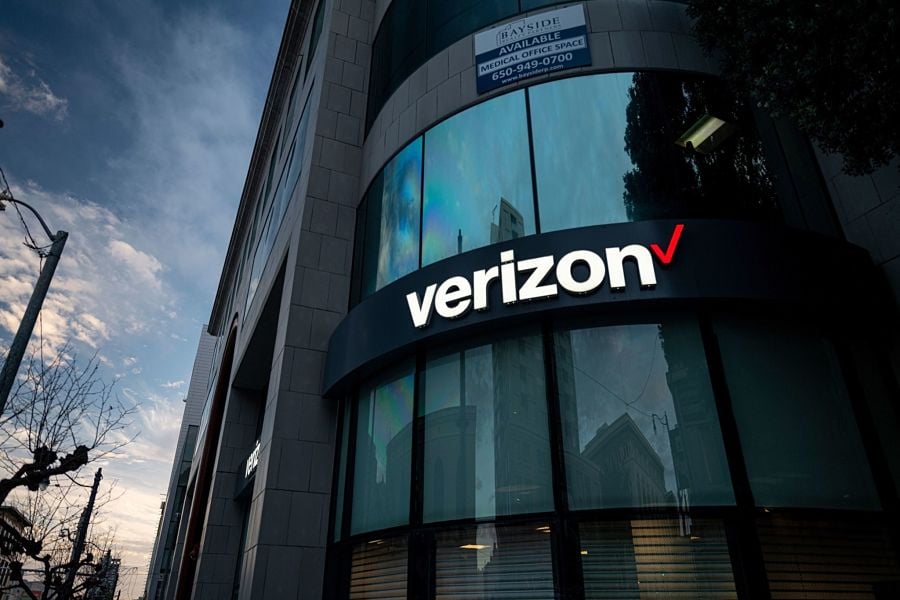

Verizon Communications Inc. made an $8.2 billion payment to the U.S. Treasury Wednesday and expects to go to the debt market to help finance the remaining $36 billion due this month for airwaves that the phone giant needs to accelerate growth.
“We expect to access the public debt market as soon as possible, assuming favorable conditions,” CFO Matt Ellis said on an webcast Wednesday with investors.
Verizon raised $12 billion in a bond sale in November and has set up a $25 billion bank facility to help cover the largest splurge on airwaves ever.
Verizon, the largest U.S. wireless carrier, is chasing rival T-Mobile US Inc., which holds as much as a year's lead in the some of the key midband frequencies crucial to the new 5G wireless services that all of the carriers are developing. Verizon committed $45 billion last month in the record federal airwaves auction.
The carrier expects to its revenue growth to double to 4% by 2024, riding on a wave of new 5G services. But that will come with higher costs. Verizon plans an additional $10 billion in capital expenditures over three years as it expands its 5G network. The costs are expected to reduce profit by 10 cents a share next year and 20 cents a share in 2023.
The airwaves are prized for their ability to travel far and carry lots of data. They are expected to drive years of new revenue growth when deployed for next-generation mobile devices, autonomous vehicles, health care equipment and manufacturing facilities.
The company said Wednesday it will cover 100 million people with its new 5G C-band and millimeter-wave networks by year-end and reach coast-to-coast coverage by 2024.
After years of passing up large M&A deals like those engineered by AT&T Inc., Verizon has made a huge bet on its network under the assumption that consumers and businesses will adopt 5G services.
“We are in a scaling mode right now,” Chief Executive Hans Vestberg said as he concluded the investor presentation.

Chasing productivity is one thing, but when you're cutting corners, missing details, and making mistakes, it's time to take a step back.

It is not clear how many employees will be affected, but none of the private partnership’s 20,000 financial advisors will see their jobs at risk.

The historic summer sitting saw a roughly two-thirds pass rate, with most CFP hopefuls falling in the under-40 age group.

"The greed and deception of this Ponzi scheme has resulted in the same way they have throughout history," said Daniel Brubaker, U.S. Postal Inspection Service inspector in charge.

Elsewhere, an advisor formerly with a Commonwealth affiliate firm is launching her own independent practice with an Osaic OSJ.
Stan Gregor, Chairman & CEO of Summit Financial Holdings, explores how RIAs can meet growing demand for family office-style services among mass affluent clients through tax-first planning, technology, and collaboration—positioning firms for long-term success
Chris Vizzi, Co-Founder & Partner of South Coast Investment Advisors, LLC, shares how 2025 estate tax changes—$13.99M per person—offer more than tax savings. Learn how to pass on purpose, values, and vision to unite generations and give wealth lasting meaning
